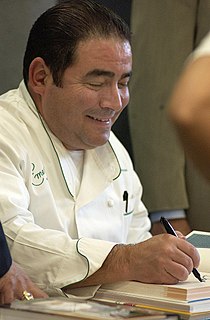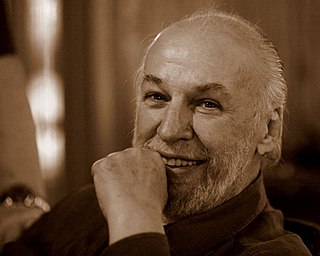A Quote by Emeril Lagasse
I respected it. I submerged myself into it. So on a lot of days off I would go and fish with the fishermen and the families that ran the boats. I would go work the fields with farmers. I would go and talk with farmers about growing particular products for me.
Related Quotes
I have to try to watch myself and give myself feedback. People would take for granted that I was ready to go right away. And I would say, "No, no, no, no, I actually have to go talk to myself." Because I need to just take a minute to think about what just happened and tell myself what to do in the next take, so just give me two minutes to go be a director.
I had promised myself when I first got started that if I got to the point my life where I started feeling 'Gee, I'd rather be at home than at work', and that started happening more often than not, that it would be time to leave. I'd wake up some days and go "Oh, I don't even know if I want to go face this anymore". I would, I would go do it, I'm a dutiful kind of person and not afraid of work.
A decade ago, critics suggested biotech crops would not be valuable in the developing world. Now 90 percent of farmers who benefit are resource-poor farmers in developing countries. These helped alleviate 7.7 million subsistence farmers in China, India, South Africa, the Philippines from abject poverty.








































